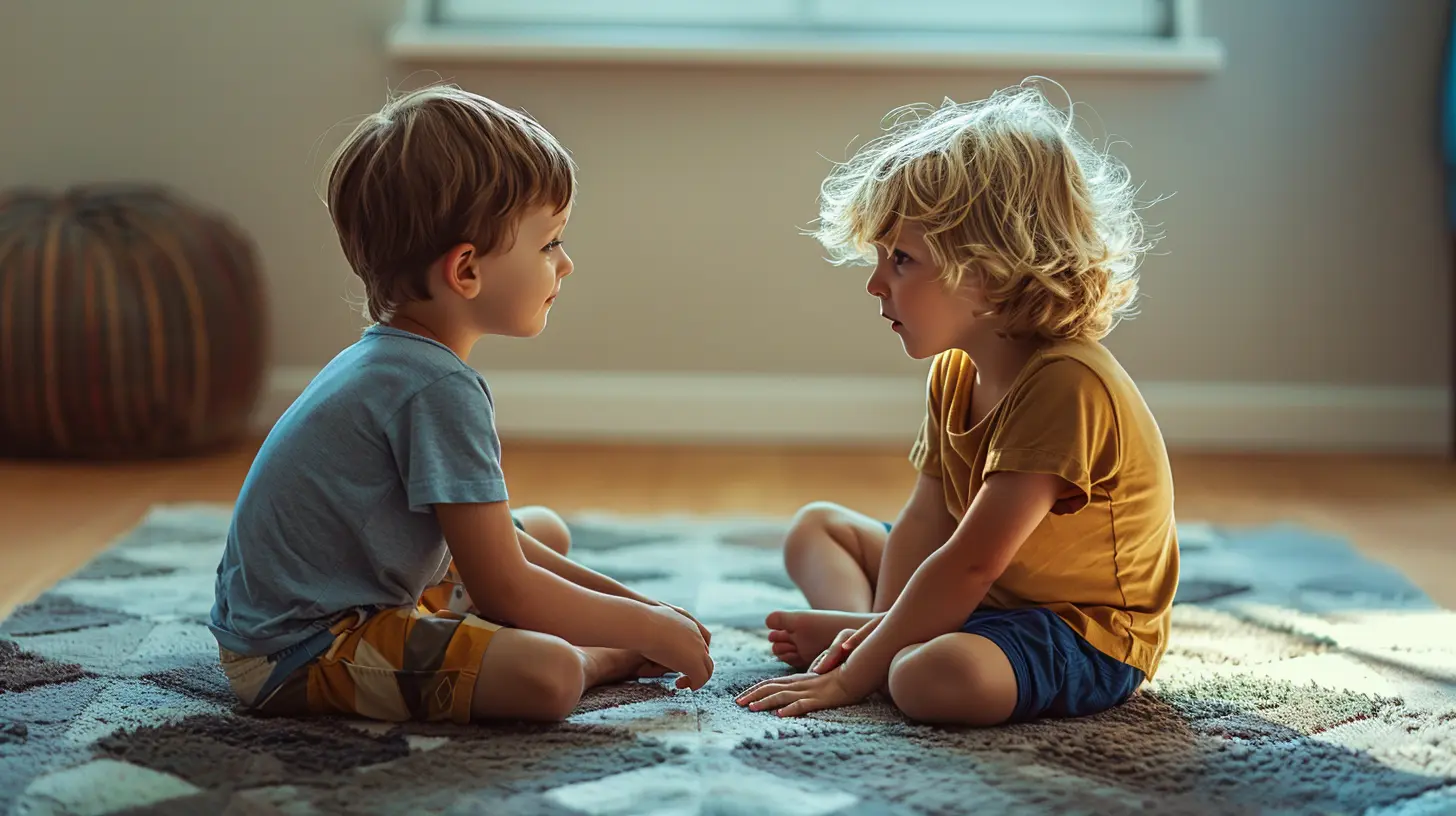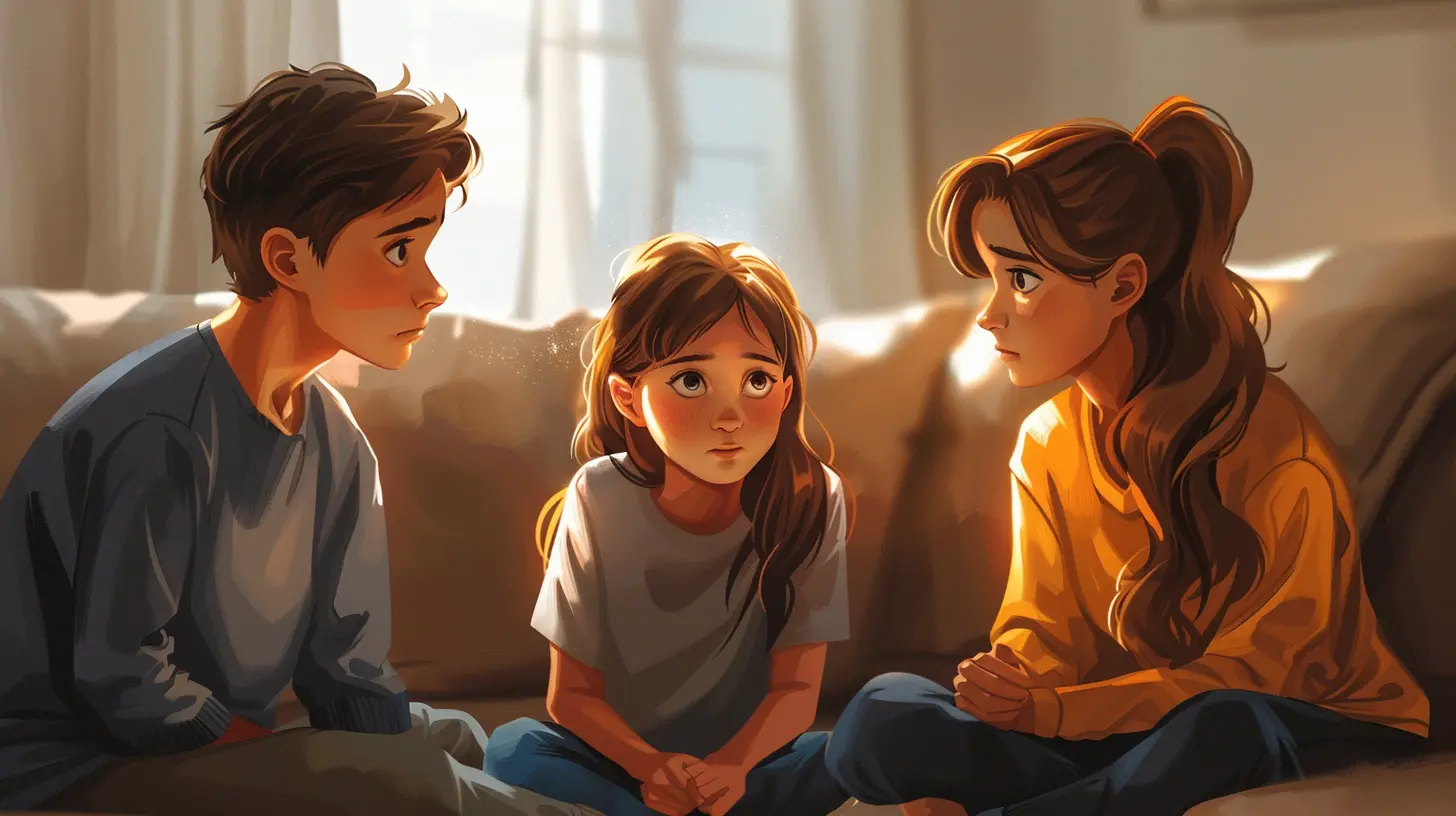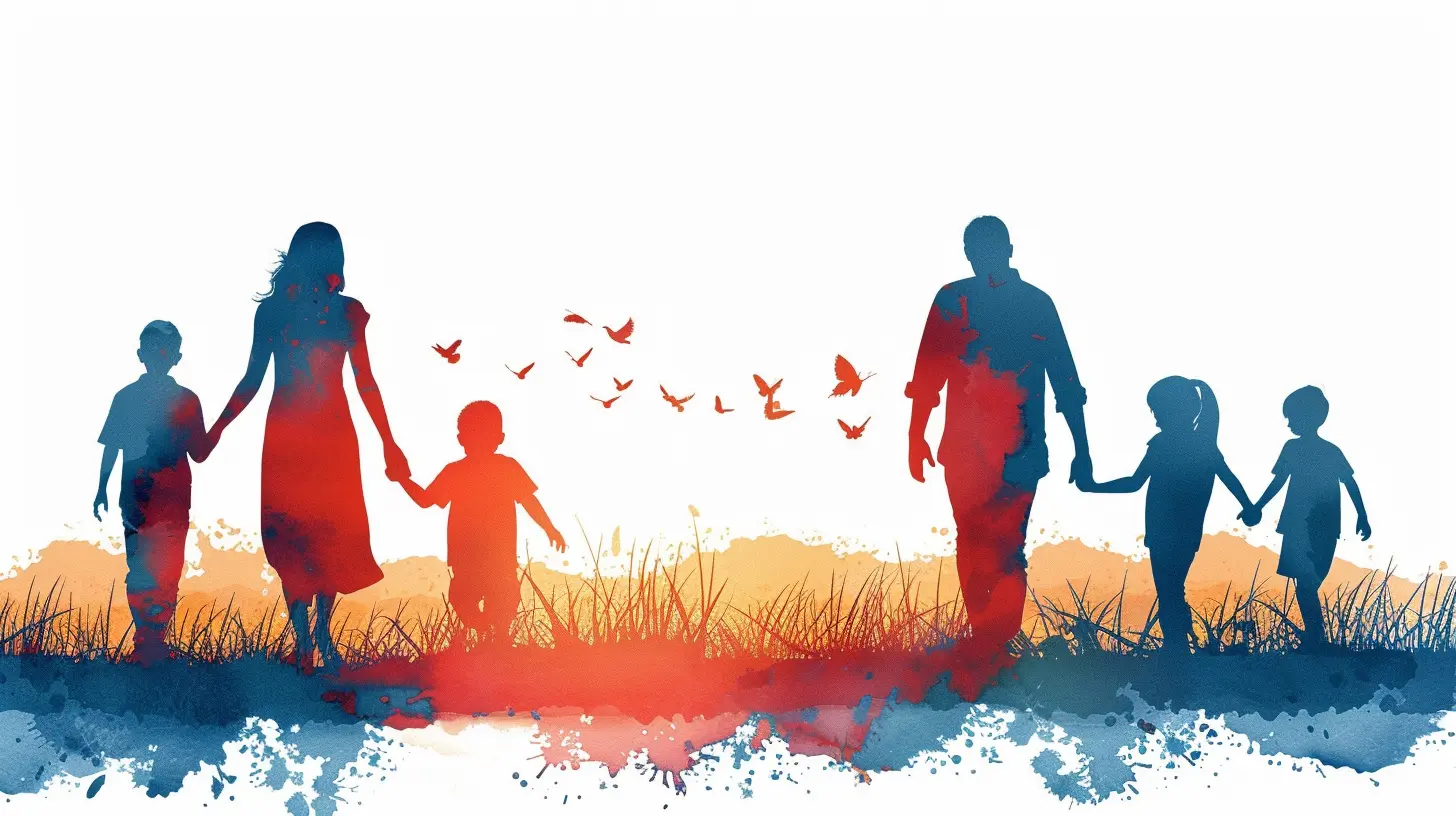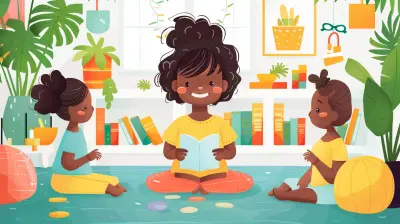Talking to Kids About Big Changes: Moving, Divorce, and More
2 June 2025
Change is a part of life, but for kids, it can feel like their whole world is being turned upside down. Whether you're moving to a new home, going through a divorce, or facing another major life transition, helping your child navigate these changes with understanding and reassurance is key.
In this guide, we’ll walk through how to have honest, age-appropriate conversations with your kids about big changes. We’ll also share tips to help them feel safe, supported, and equipped to handle life’s unexpected turns.

Why Big Changes Are Tough for Kids
Kids thrive on routine and predictability. When something big happens—like moving away from friends, adjusting to a new family dynamic, or even welcoming a new sibling—it can shake their sense of security.Unlike adults, children don’t always have the words to express their emotions. Instead, they might act out, withdraw, or develop fears and anxieties. This is why it’s so important to approach these conversations with patience, honesty, and a whole lot of love. 
Talking to Kids About Moving
Moving to a new home can be exciting for parents, but for kids, it’s often filled with uncertainty and sadness—especially if they’re leaving behind friends, school, and familiar surroundings.How to Break the News
- Be Honest and Direct – Tell them as soon as the decision is final. Avoid springing it on them at the last minute.- Explain the Reasons – Keep it simple and age-appropriate. Younger kids don’t need every detail, but they do need to understand why.
- Acknowledge Their Feelings – Let them know it’s okay to feel sad, scared, or even angry.
Helping Kids Adjust to a Move
- Let Them Be Part of the Process – If possible, involve them in choosing a new home, decorating their new room, or picking out a school.- Highlight the Positives – Talk about new adventures they can look forward to, like making new friends or finding cool places to visit.
- Stay Connected – If leaving behind friends and family, encourage keeping in touch through video calls, letters, or visits.
If your child is struggling with the idea of moving, reassure them that you're in this together. Moving is just a new chapter, and adventures await! 
Talking to Kids About Divorce
Divorce can be one of the toughest conversations to have with a child. The fear, confusion, and sadness that come with this big change can be overwhelming, so it’s essential to approach it with care.How to Tell Your Child About Divorce
- Present a United Front – If possible, both parents should sit down together to break the news calmly.- Keep It Simple – Avoid blaming or giving unnecessary details. Focus on what will happen next.
- Reassure Them – Make it clear that both parents love them and that they are not responsible for the divorce.
Helping Kids Cope with Divorce
- Maintain Routines – Stability is crucial. Try to keep their daily schedule as normal as possible.- Encourage Open Communication – Let them express their feelings, and validate their emotions without dismissing them.
- Never Use Kids as Messengers – Keep adult conflicts between adults. Kids should never feel like they have to choose sides.
If your child is struggling, consider family therapy or counseling. Sometimes, having a neutral space to talk can make all the difference. 
Talking to Kids About Losing a Loved One
Losing a family member, pet, or close friend can be a heartbreaking experience for a child. Grief is confusing, and every child processes it differently.How to Talk About Loss
- Use Clear, Honest Language – Avoid phrases like “went to sleep” or “passed away” with young kids. Instead, gently explain that the person or pet has died, and they won’t be coming back.- Let Them Ask Questions – Kids will have many questions, and it’s okay if you don’t have all the answers. Just be honest and keep the conversation open.
- Acknowledge Their Feelings – Let them know it’s okay to feel sad, angry, or confused. Share your own feelings to show that grief is a natural process.
Helping Kids Cope with Grief
- Create a Memory Ritual – Looking at pictures, sharing stories, or making a scrapbook can help keep loved ones close in their hearts.- Encourage Expression – Drawing, journaling, or even talking to a trusted adult can help them process their emotions.
- Be Patient – Grief doesn’t follow a timeline. Check in often and offer support as they navigate their feelings.
Losing someone is one of life’s hardest lessons, but with love and support, children can learn to cherish the memories while moving forward.
Other Big Changes That May Affect Kids
While moving and divorce are two of the most common major life changes, other events can also cause stress and anxiety for children:- A New Sibling – Exciting for parents, but can feel like a loss of attention for a child. Prepare them in advance and ensure they still feel special.
- Starting a New School – A fresh start, but also intimidating! Help them by visiting the new school beforehand and encouraging involvement in activities.
- A Parent Losing a Job – Kids pick up on financial stress. Reassure them that their needs will still be met, and keep a sense of normalcy.
- Health Issues in the Family – If a close family member is sick, be as open as possible while providing comfort and reassurance.
Every big change comes with an emotional impact, and kids will react in their own way. By keeping communication open and providing constant support, you can help them navigate even the toughest transitions.
Final Thoughts
No matter what change your family is facing, the most important thing is to ensure your child feels heard, loved, and supported. Transitions can be scary, but with patience, honesty, and reassurance, you can help your child adapt in a healthy way.Remember, kids don’t need perfection—they just need a loving guide to walk them through life’s ups and downs. And that’s exactly what you’re here for.
all images in this post were generated using AI tools
Category:
Parenting TipsAuthor:

Kelly Snow
Discussion
rate this article
3 comments
Audrey Warner
Great tips! It’s so important to support our kids through big changes. Open dialogue helps them feel secure and loved! 🌟❤️
June 21, 2025 at 3:19 AM

Kelly Snow
Thank you! I wholeheartedly agree—open dialogue truly makes a difference in helping kids navigate changes with confidence and love. 🌟❤️
Rina Coffey
In life’s shifting sands, our little ones seek, Gentle words to cradle the heart, strong yet meek. With love as our guide, we navigate the seas, Together we weather, and find peace with ease.
June 12, 2025 at 2:56 AM

Kelly Snow
Absolutely! Your beautifully crafted words capture the essence of nurturing our children's emotions during life's transitions. Love and gentle guidance are key. Thank you for sharing!
Niko Malone
This article effectively highlights the importance of open communication during major life changes. However, it could delve deeper into individual child responses, emphasizing the need for tailored conversations. Understanding a child's unique emotional landscape is crucial in helping them navigate and process these significant transitions with resilience.
June 2, 2025 at 4:00 PM

Kelly Snow
Thank you for your valuable feedback! I agree that exploring individual child responses is essential, and I appreciate your suggestion for tailoring conversations to each child's unique emotional landscape.



